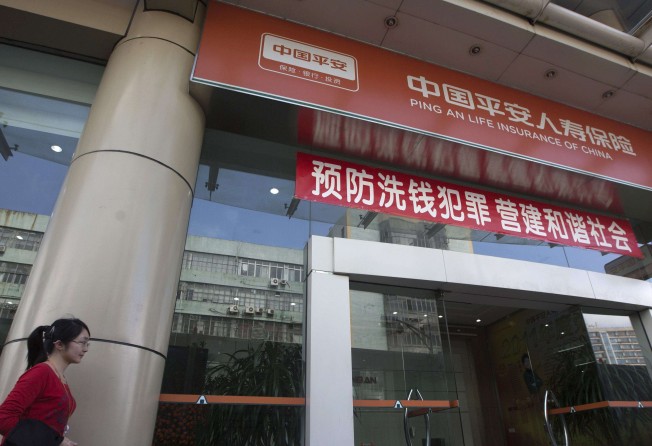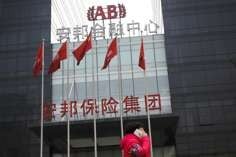China’s insurance regulator eyes tighter scrutiny on ‘too big to fail’ players

China is expected to finalise a list of “too-big-to-fail” insurers this year as the nation’s top insurance watchdog flexes its muscles in a bid to safeguard financial stability through tighter scrutiny on major players, market observers said.
The China Insurance Regulatory Commission has asked 16 major insurers, including People’s Insurance Company (Group) of China, China Life Insurance, Ping An Insurance (Group) and Anbang Insurance Group, to provide data as part of its plan to identify domestic systematically important insurers (D-SII), or companies deemed “too big to fail” due to their potential impact on the financial system and society.
Domestic insurers on the list will face additional regulatory burdens including tighter capital scrutiny, enhanced group-wide supervision, and recovery and resolution planning requirements.
The D-SII are expected to be selected from the 16 major players shortlisted, observers said.
“The CIRC is beefing up risk control measures for better protection of financial stability, learning from global best practises,” said Andy Ng, insurance leader for EY Greater China.
The programme is similar to the global systematically important insurers (G-SII) scheme initiated by the Financial Stability Board, an international agency endorsed by the Group of 20 member nations to increase global financial stability in the post-2008 financial crisis era.
Observers said CIRC has turned to Shenzhen-based Ping An for input as the insurer, dual-listed in Hong Kong and Shanghai, has been on the list of globally systematically important insurers ever since the FSB started compiling the list in 2013.
Many insurers are believed to be unhappy with the attention bestowed by the designation of “too big to fail”.
“Some insurers have been concerned about higher compliance costs in coping with the D-SII requirement,” said Jimi Zhou, PwC China consulting partner. “Regulators can offer preferential policies as incentives, or more benefits for more liabilities.”
Ren Zhiyi, a partner at law firm Fangda Partners, said the big players may receive some concessions from the regulator in exchange for playing a key role in stabilising the market.

Challenges loom for big insurers needing to cope with the tighter scrutiny.
The lack of compliance professionals is one apparent headache. But the more challenging issue is that it will take time for the insurers’ management to fully understand the significance of the programme at a strategic level, Zhou said.
Fangda’s Ren also noted that the CIRC’s move should be seen in the bigger picture of China’s strengthened supervision of cross-sector business within the financial industry.
Expectations are already high for the establishment of a financial super-regulator to oversee the banking, insurance and securities industries against rising cross sales and transactions.
In a set of draft rules, the regulator stipulated that a CIRC-led risk management leadership group would call on the nation’s top banking and securities regulators to assessinsurers’ operations and prepare resolution plans in the event a failure occurs.